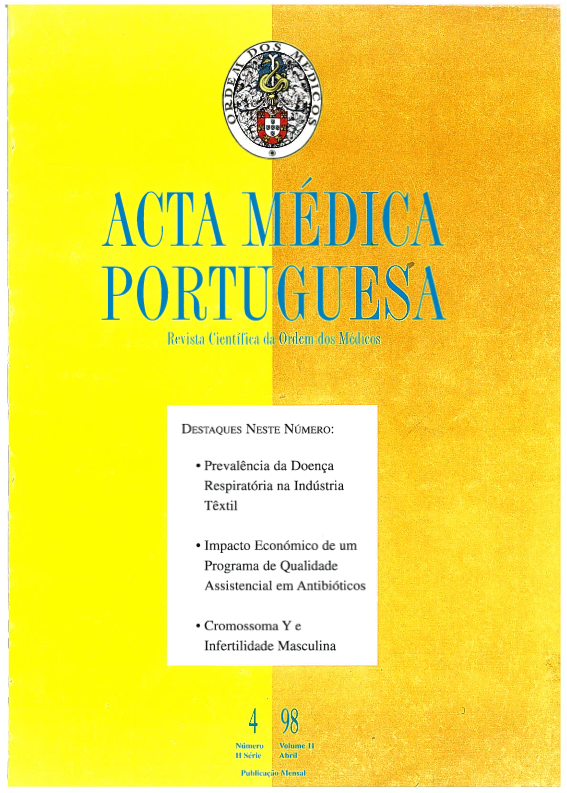Anticoagulantes Lúpicos versus Anticorpos Antifosfolípidos.
DOI:
https://doi.org/10.20344/amp.2241Resumo
The antiphospholipid antibodies (aPL) present in "antiphospholipid-protein syndrome and autoimmune disorders" are associated with thromboembolic episodes, such as venous and/or arterial thrombosis and fetal loss. Patients with antiphospholipid antibodies have, by definition, laboratory abnormalities in either coagulation assays or various solid phase immunoassays ELISA or radioimmunoassays (RIA). These assay systems were initially thought to detect antibodies against phospholipids. The problem was complicated when it was reported that phospholipid is not the sole antigen but only a part of it, the other contribution being due to b2-glycoprotein I (b2-GP I). More findings, demonstrate that the aPL are in fact anti-b2-GP I antibodies directed against a epitope which is expressed when b2-GP I is bound to anionic phospholipid or another suitable surface. Recent studies have demonstrated that antibodies related to lupus anticoagulant (LA) induce an anticoagulant activity in b2-GP I. Some of these LA require binding to phospholipid. However, not all LA require b2-GP I as a cofactor. Human prothrombin is an antigen for some LA IgG's. Finally, a subclassification of phospholipid-dependent coagulation test anticoagulants is described, there appear to be several subclasses of LA, and the clinical and laboratory criteria required to establish the diagnosis of antiphospholipid-protein syndrome is emphasised.Downloads
Downloads
Como Citar
Edição
Secção
Licença
Todos os artigos publicados na AMP são de acesso aberto e cumprem os requisitos das agências de financiamento ou instituições académicas. Relativamente à utilização por terceiros a AMP rege-se pelos termos da licença Creative Commons ‘Atribuição – Uso Não-Comercial – (CC-BY-NC)’.
É da responsabilidade do autor obter permissão para reproduzir figuras, tabelas, etc., de outras publicações. Após a aceitação de um artigo, os autores serão convidados a preencher uma “Declaração de Responsabilidade Autoral e Partilha de Direitos de Autor “(http://www.actamedicaportuguesa.com/info/AMP-NormasPublicacao.pdf) e a “Declaração de Potenciais Conflitos de Interesse” (http://www.icmje.org/conflicts-of-interest) do ICMJE. Será enviado um e-mail ao autor correspondente, confirmando a receção do manuscrito.
Após a publicação, os autores ficam autorizados a disponibilizar os seus artigos em repositórios das suas instituições de origem, desde que mencionem sempre onde foram publicados e de acordo com a licença Creative Commons









